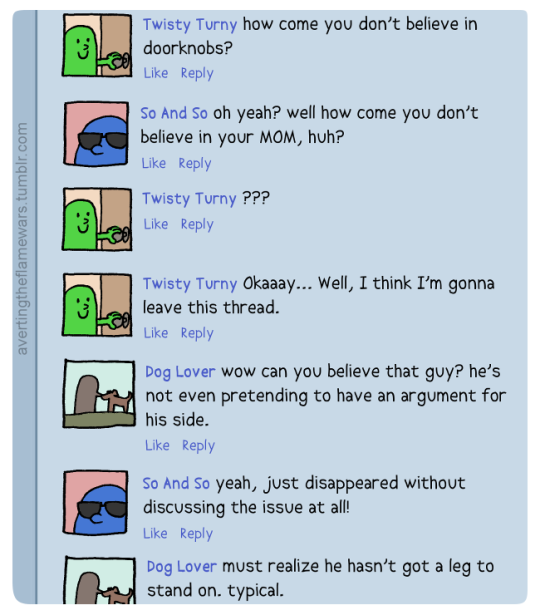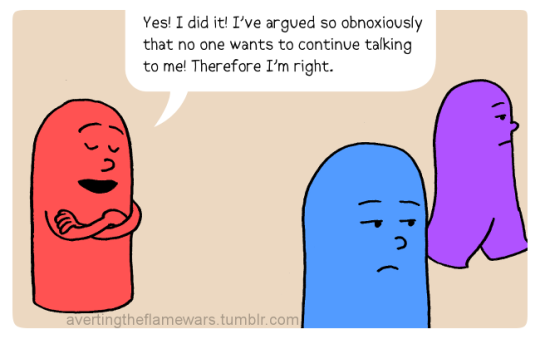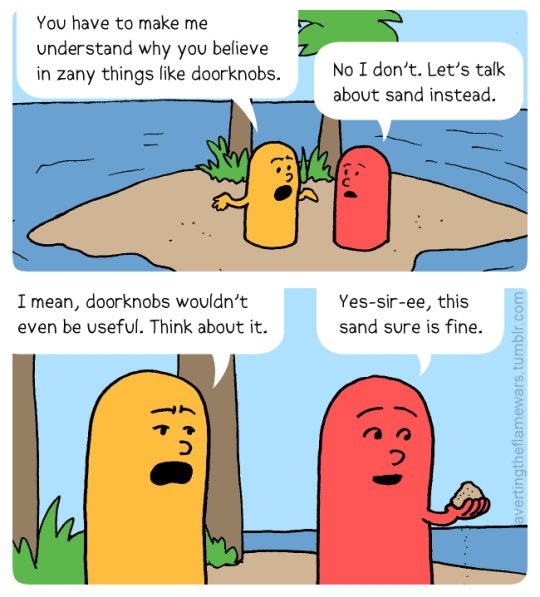#online debates
Sometimes you’ll want to write your farewells when you leave a conversation.
It might be to let people know not to direct further conversation to you, or so you have something to hold yourself to when you’re tempted to re-enter the discussion.
If you’re leaving a conversation that has gotten tense, it can make your departure easier all around if you avoid putting forth arguments or criticisms on your way out.
Now, depending on the quality of the discussion when you opt out of it, people might gloat or judge you for disengaging from it. It can feel like you’re surrendering by leaving.

But if leaving means that the other person has won, then the concept of winning an argument is pretty ridiculous.

Sometimes the argument is happening in a place you think of as your turf – like a tag you’re only used to sharing with a small group of people, a post you made, or even your messaging inbox. That makes it harder to leave, because you might need the people you’re arguing with to cooperate with you in dropping the discussion.
So, start by asking. Say something like, “Hey, I’m ready to stop having this conversation. Would you be willing to take it somewhere else?”
or, “I’m pretty burned out on this topic. Please don’t tag me or message me about it going forward.” Build the skill that is gently and persistently asking for space when you need it.
If repeated requests to end the conversation don’t work, try blocking the other person. Or if the website you’re on allows, block keywords related to the topic. If you can ignore someone entirely, that’s good too. They may get bored and go away.
They also might not.
If you can’t ignore someone, and they’re not responding to your requests to be left alone, that makes it pretty hard not to jump straight back into arguing aggressively on the topic you’re trying to drop.
When circumstances make it hard or impossible for you to avoid a person, you can always focus on continuing to make it clear that you’re done discussing the topic.

There’s a limit to how much you can do get others to leave you alone. But the more times and ways you can express your wishes without escalating a conflict, the better your chances are of being heard.
